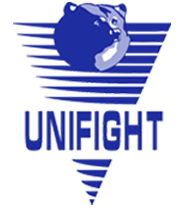The FIAU anti-doping program aims to preserve the spirit of Unifight sport, to uphold ethics, fair play and integrity, and the health of the players. As doping is fundamentally against the spirit of sport, FIAU is committed to eradicating doping from sport, protecting clean athletes and wants to maintain a level playing field. The FIAU anti-doping program is fully compliant with the World Anti-Doping Code
WADA
World Anti-Doping Agency
The Association is guided in its activities by the principles of equality and non-discrimination, promotion of friendly relations, safety of sporting events, anti-doping, prevention of manipulation in sport competitions, decent sporting behavior, continuity of sporting activity, freedom of personal self-determination and choice, promotion of public participation in activities related to physical activity, development of professional sport, legality, justice, rationality and integrity. The Association fully recognizes the Convention of the World Anti-Doping Agency (WADA), as well as WADA and its subdivisions as supervisory authorities for compliance with the requirements of this Convention.
Substances and methods on WADA’s annual list of prohibited substances are unacceptable and, if identified, will be penalized in accordance with UNIFIGHT’s documents and procedures and in accordance with the rules of the World Anti-Doping Agency.
Codex
World Anti-Doping Code
Prohibited List
Substances and methods prohibited in competition, at any time and in certain sports.
2021 АНТИДОПИНГОВЫЕ ПРАВИЛА ФИАУ
Международная любительская федерация UNIFIGHT (FIAU), подписавшая Всемирный антидопинговый кодекс (Кодекс), с гордостью сообщает об антидопинговых правилах, принятых WADA и утвержденных FIAU на 2021 год.
All National Federations and other FIAU Members shall take appropriate measures to ensure compliance with the Code, International Standards and these Anti-Doping Rules as set out in Article 18.
What is Doping?

Doping is defined as the occurrence of one or more of the anti-doping rule violations. The use of doping substances or doping methods to enhance performance is fundamentally wrong and is detrimental to the overall spirit of sport
Узнать больше
Doping control

Athletes may be tested at any time and at any place without prior notice, whether or not they are included in the FIAU Registered Testing Pool (RTP). A distinction is generally made between In-Competition Testing and Out-of-Competition Testing.Узнать больше
TUE

Athletes with medical conditions competing in FIAU and Continental Competitions must obtain a TUE from the FIAU. The application for a TUE must be made as soon as possible (in the case of an Athlete in the Registered Testing Pool, this should be when he/she is first notified of his/her inclusion in the pool) and no later than 30 days before the Athlete’s participation in the Competition.Узнать больше
Results management
Results management is the process associated with potential anti-doping rule violations (ADRVs), from the reporting of an Adverse Analytical Finding (AAF), also referred to as a positive test – when a laboratory reports the presence of a Prohibited Substance or evidence of a Prohibited Method in a Sample after analysis – to the ultimate sanctioning of an Athlete.
The above WADA doping control video also includes the results management process. Once an Athlete has been informed of an AAF, the Athlete has the following rights:
- Запросить копии пакета лабораторной документации проб А и Б;
- Право на справедливое и своевременное слушание
- Право на обжалование решения FIAU, которое может быть рассмотрено Спортивным арбитражным судом (CAS)
Testing and exploration
The purpose of Testing is to detect and deter doping in Athletes in order to protect clean Athletes.
Every Athlete under the jurisdiction of the FIAU may be tested at any time, without prior notice, In-Competition or Out-of-Competition, and may be required to provide a urine or blood sample.
Education
WHAT IS EDUCATION?
The 2021 Code defines education as:
“to raise awareness, inform, communicate, instill values, develop life skills and decision-making abilities to prevent intentional and unintentional anti-doping rule violations.”
Education is a core component of any anti-doping program. The Introduction to the 2021 Code includes education in the areas of prevention of intentional or unintentional doping, as well as deterrence, detection, enforcement and the rule of law.




